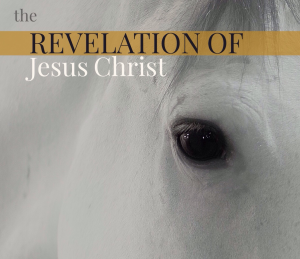Chapter 4 moves away from what things should be back to where there is trouble (false teaching) and how to combat it. When Paul says, “…the Spirit expressly says…” we have to take his word on it, there isn’t a Bible referent that validates it directly. (Not a big deal, could’ve been revealed to him at some point. However, it does bring up an interesting conversation around personal revelation outside of Scripture that is still valuable to the Kingdom folk at large. Another day.)
The concern is around folks who stop following Jesus and instead “…devote themselves to deceitful spirits and teaching of demons through the insincerity of liars whose consciences are seared, who forbid marriage and require abstinence from foods that God created to be received with thanksgiving by those who believe and know the truth.” Man, that’s a long sentence. Couple things. First, this is obviously happening during Timothy’s time, one of his primary calls is to combat it. So, when Paul writes “…in later times…”, we can’t pull that out of his time period and say that it is a prophecy of what will happen sometime in the future. No, the “later times” or “last days” in the New Testament generally refer to the time between Jesus’ ascension and his second coming. They are the “last days” in that, once Jesus returns, there simply won’t be any more days (no reason to count, eternity is at hand!)
That said, the second point is obviously that we share the “later days” with Timothy as this sounds very much like our modern situation. (For those who think things are getting progressively worse societally, I’d note that there is nothing new under the sun, people have been bankrupt and debased and trying to take governments and institutions with them forever. If you don’t believe that, I have a tower in Babel I’d like to sell you.) An acute risk in our day, with the wide proliferation of media and accessibility to a diversity of thought, is the confusion that can come with it. It is easy to make things sound like Jesus may have said them, or pull them out of context and create a movement with it, or take a Biblical idea and bend it, twist it, generalize it until it’s not recognizable and then tag it as if it originated from the throne of Jesus. I’m willing to run down any rabbit hole that is trying to rightly understand the Word we have been given to ensure that I don’t miss what Jesus is really after because of some inherent bias or cultural assumption or trust in some slick willy interpretation. But I won’t ever accept Bible-lite or some lame philosophy that smells a little like Scripture but also smells like profit and vibes and cultural-personality horseradish.
Also, don’t reject good things God has given you. (I’m looking at you, Daniel fast.)
Paul instructs Timothy to take these truths and share them with the brothers. Don’t chase myths and help others to stop chasing them (I had a wingding of a conversation this week with a dude trying to find end-times significance in some constellation formation in September this year. 20 texts in and I’m not sure we made much progress. It’s the work, though.) There’s also a call to “train yourself” for godliness (which I apparently double-underlined at some point in the past. I’m assuming it was an excuse to not also take care of my body.) Paul says that there is some value in taking care of your body, but there is all-value in training yourself spiritually (that does work in this life and the next. Your beach bod only has value in this life. Stay healthy, Adonis, just keep it in the right balance/priority with spiritual training.) How do we do that? We’re doing it now. (Unless you’re not keeping up with the reading, in which case you’re not doing it. Pull it together.)
Paul then says something that causes people to write books and set up blogs and ignore the rest of Scripture: “…we have our hope set on the living God, who is the Savior of all people, especially those who believe.” Yay! Everyone is saved, even if they turn their backs on Jesus and do whatever they want because the living God is the Savior of all people! Can’t be right. If this were true, and we’ll ignore for the moment Jesus saying things like narrow gate and repeated descriptions of eternal separation, then Paul’s instructions to Timothy IN THIS CHAPTER ALONE make no sense. Why protect right doctrine and avoid myths if it doesn’t matter at all?
There are a number of options here, I think Occam’s Razor applies (the simplest is the most likely explanation). The confusion hinges on the word “especially”, which is interpreted in slightly different ways throughout the Bible. In some cases it is a further distinction (“all the saints salute you, specifically those within Caesar’s household”, Philippians 4:22) and in some cases an exact distinction (“Of whom I have no certain thing to write unto my lord. Wherefore I have brought him forth before you, and specially before thee, O king Agrippa, that, after examination had, I might have somewhat to write”, Acts 25:26.) In this Timothy instance, I think it’s the second option. “…we have our hope set on the living God, who is the Savior of all people, specifically those who believe.” He died to save the world, the ones who are saved are those who have faith in Him, believing that they needed it and that He did it.
The chapter finishes with Paul encouraging Timothy to not be dissuaded from his work and to live as an example to everyone around him. To hit one of Paul’s previous points, youth is not an issue, but maturity is. Don’t put yourself in a position you know you’re not mature enough to have. Pastoral work is an older fellas game for a reason (I reflect upon my own situation cautiously in this regard as well.) That said, where God has gifted and sent you, let no “normal” barriers contain you. Wisdom is being mindful of cautions but unafraid when the boundary of caution is to be crossed. For Timothy, he is to devote himself to the work, teaching, reading Scripture, and demonstrating his progress to those around him (I’d generally assume through his teaching but could be otherwise I guess). By persisting, committing to his calling, it has an impact on him and the people around him.



